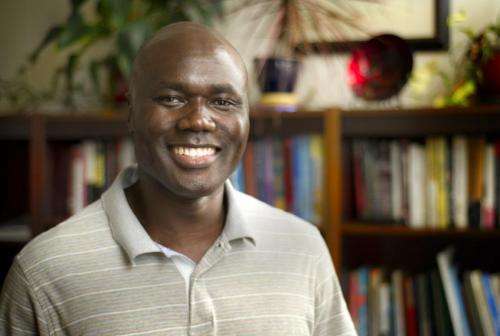Teens living with two college-educated parents less likely to use alcohol and marijuana

A high school senior who lives with two college-educated parents is significantly less likely to drink alcohol or smoke marijuana than a teenager who lives with one parent, a new University of Texas at Arlington study has found.
For example, teens living with their mother only are 54 percent more likely to use alcohol, and 58 percent more likely to smoke if they live only with their father.
Eusebius Small, an assistant professor in the UT Arlington School of Social Work, analyzed data on 14,268 teenagers to determine the impact of family structure and parental education on adolescents' substance use. He concluded that family structure and parental education had a more substantial influence on the teen's well-being than other factors such as gender, age or where the teen lived.
In terms of race, researchers found the presence of both parents is an especially strong protective factor for African-American adolescents. When both groups live in two parent homes, white teenagers are 69 percent more likely to engage in substance abuse than black teens. Hispanic teens who live with both parents are 74 percent more likely to use alcohol than their African-American peers who live with both parents.
"We know from previous research that early drinking and drug use is linked to social, economic, emotional and behavioral problems including violence, depression and precarious sexual activity," said Small, whose work focuses on reducing incidents of sexually transmitted infections among adolescents. "Addressing these environmental concerns in concert with related individual problems could reduce substance use occurrences among our young people."
Small co-authored the research with Arati Maleku, a doctoral student and adjunct assistant professor in the UT Arlington School of Social Work, and Rie Suzuki, an assistant professor of public health and health sciences at the University of Michigan-Flint.
The study, called "The Impact of Family and Parental Education on Adolescents' Substance Use: A Study of U.S. High School Seniors," is published online in the journal, Social Work in Public Health.
Scott Ryan, dean of the UT Arlington School of Social Work, said Small's work enhances the conversation about teen substance use and furthers understanding of research to combat the problem.
"Addressing high-risk behaviors means understanding the underlying mechanisms and contextual factors that influence our youths," Ryan said. "Dr. Small's research accomplishes that goal and contributes greatly to ongoing efforts to help families make healthier choices."
The team reviewed data from the ongoing Monitoring the Future study, which is conducted each year by the Institute for Social Research at the University of Michigan. Approximately 50,000 eighth, 10th and 12th grade students are surveyed across the nation. Small and his team used only 12th grade samples addressing demographic variables, beliefs concerning personal lifestyle, school performance and satisfaction, intergroup and interpersonal attitudes and behaviors, attitudes, and beliefs related to alcohol and other substance use, such as tobacco and marijuana.
Previous studies have affirmed that youths who use drugs and alcohol early often reside in families with poor family structure, lower parental education and are from ethnic minority families. But studies focusing on teen substance abuse and family factors, especially among minority ethnic populations, are sparse and fragmented, the researchers said.
Previous studies have recommended the exploration of family structure, parental education and ethnicity to address key risk factors that involve adolescents' substance use, and as a first step in unlocking the complexities of health disparities among diverse populations. "Our study should re-emphasize the direction for practice and policy, for example, examining the elements in the family structure that are deemed protective and can enhance the well-being of children," Small said.
















